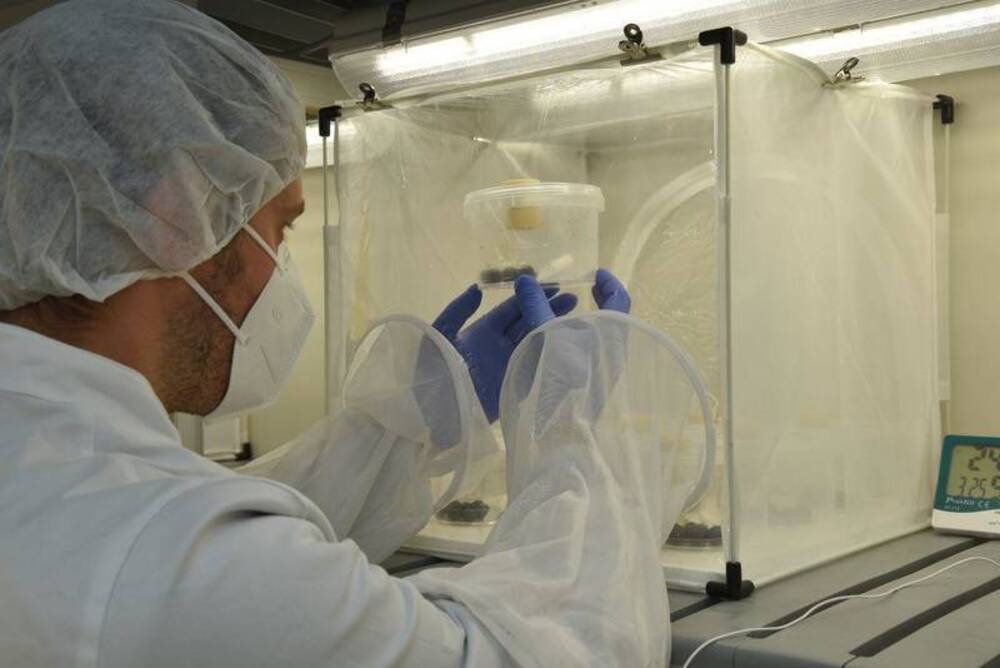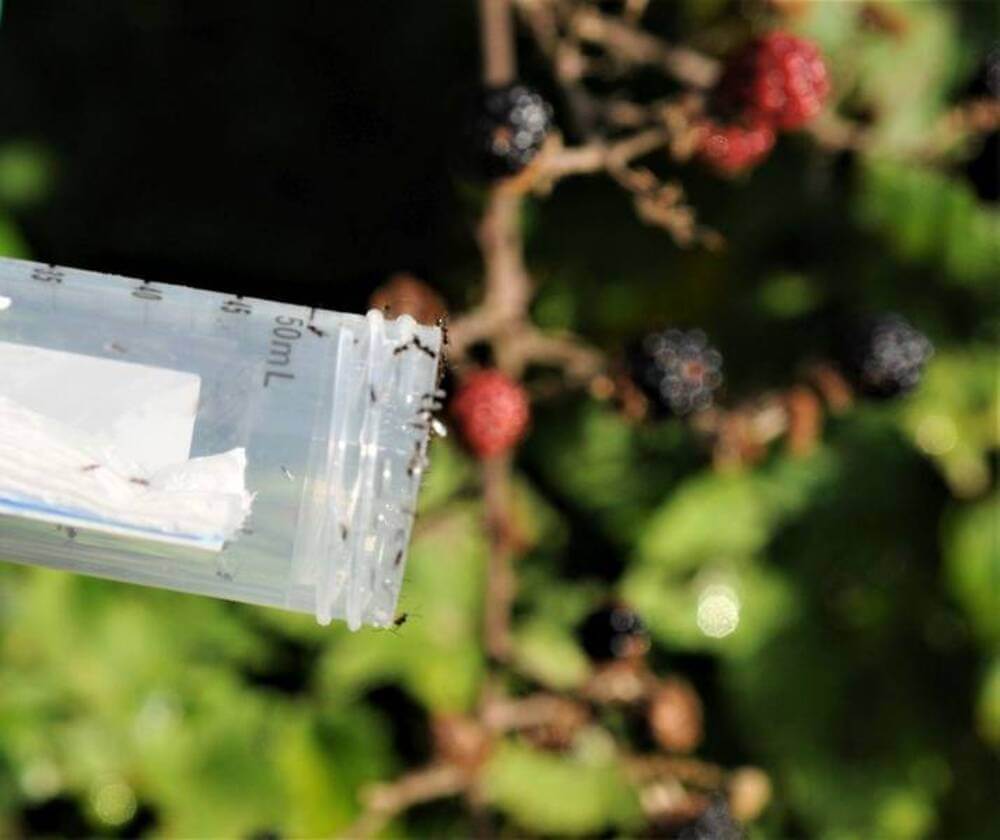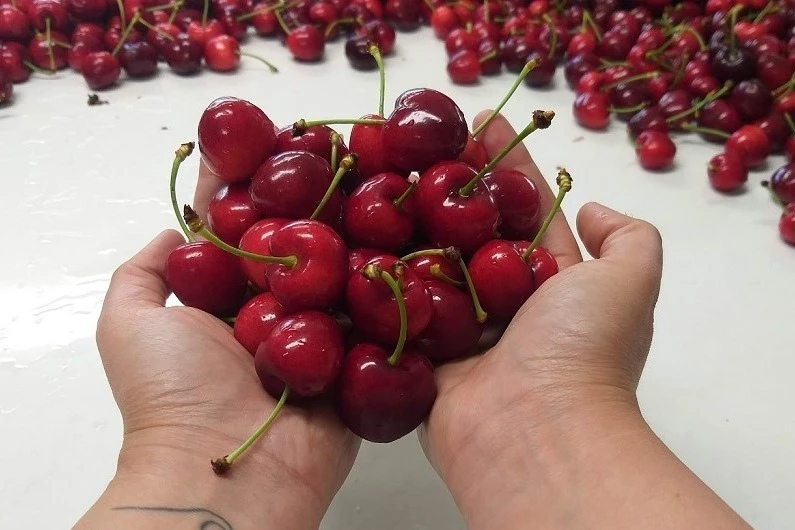In Trentino in the cherry and small fruit fields, the technicians of the Mach Foundation are finding significant damage caused by Drosophila suzukii. Unfortunately, this winter's mild temperatures have reduced the Asiatic midge's winter mortality, creating favourable conditions for the establishment of a high population from early spring.
Meanwhile, launches of parasitoids to combat drosophila continue uninterrupted for the second year at twenty sites, even though ministerial authorisation arrived after mid-June.
"In the January-April period, the monitoring network managed by the Edmund Mach Foundation (FEM) detected catches of Drosophila suzukii up to ten times higher than the average of the last decade," points out Claudio Ioriatti, responsible for FEM's research projects related to the sustainability of agroecosystems.
"This explains the intensity of the attack recorded on the cherry crop since the last ten days of May.

Monitoring results: high damage mainly in fields not protected with insect covers
FEM supported producers by offering an attack level verification service on cherry samples from off-grid and under-net crops. A total of 345 samples were analysed up to mid-July, of which 59 from unprotected netted orchards and 286 collected in netted cherry orchards. In the case of the unprotected cherry orchards, the analysed samples showed a percentage of infested fruit in the order of 85% already at the end of May.
Subsequently, thanks to the control measures applied by the growers, the percentage of infested fruit dropped somewhat, but never below 70%.
The situation in the orchards protected by the insect net was different. Here, infected fruit was detected later and still in almost zero percentages until more than mid-June, then gradually increased towards the end of the season and reached just under 40% in the last samplings in mid-July.

Biological control: authorised launches delayed, but pest control activities continue
With regard to biological control, launches of the exotic parasitoid Ganaspis brasiliensis continued this year at the twenty sites authorised by the Ministry. Unfortunately, the late issue of the authorisation forced the FEM to carry out the first round of launches only at the turn of mid-June, so it is not yet possible to have data on its establishment and parasitisation rates.
On the other hand, the constant spread of the other exotic parasitoid, Leptopilina japonica, which has arrived spontaneously in our areas and was discovered for the first time in Europe by FEM staff in 2019, was also ascertained this year.
The samplings carried out on infested fruit from wild cherry trees revealed not only a further expansion of its presence, but also a significant increase in the parasitisation rate from an average of 6% in 2021 to an average of 20% this year.
In sampling sites with a lower incidence of cultivated areas, the percentage of parasitised Drosophila suzukii is even higher, exceeding even 40%.
"The biological control techniques we are implementing," Dr Ioriatti points out, "do not aim to establish direct control of the Drosophila suzukii population in the cultivated field, where auxiliaries would be unlikely to survive due to phytosanitary treatments, but rather to control the midge populations in natural areas where they find favourable conditions for their development.
"By reducing the populations of the Asian midge in these areas, the intensity of migration towards the crops is reduced, giving other means of control (nets, plant protection products, etc.) the opportunity to act on less numerous populations and therefore in more favourable conditions to meet producers' expectations".

Source: E. Mach Foundation
Cherry Times - All rights reserved













